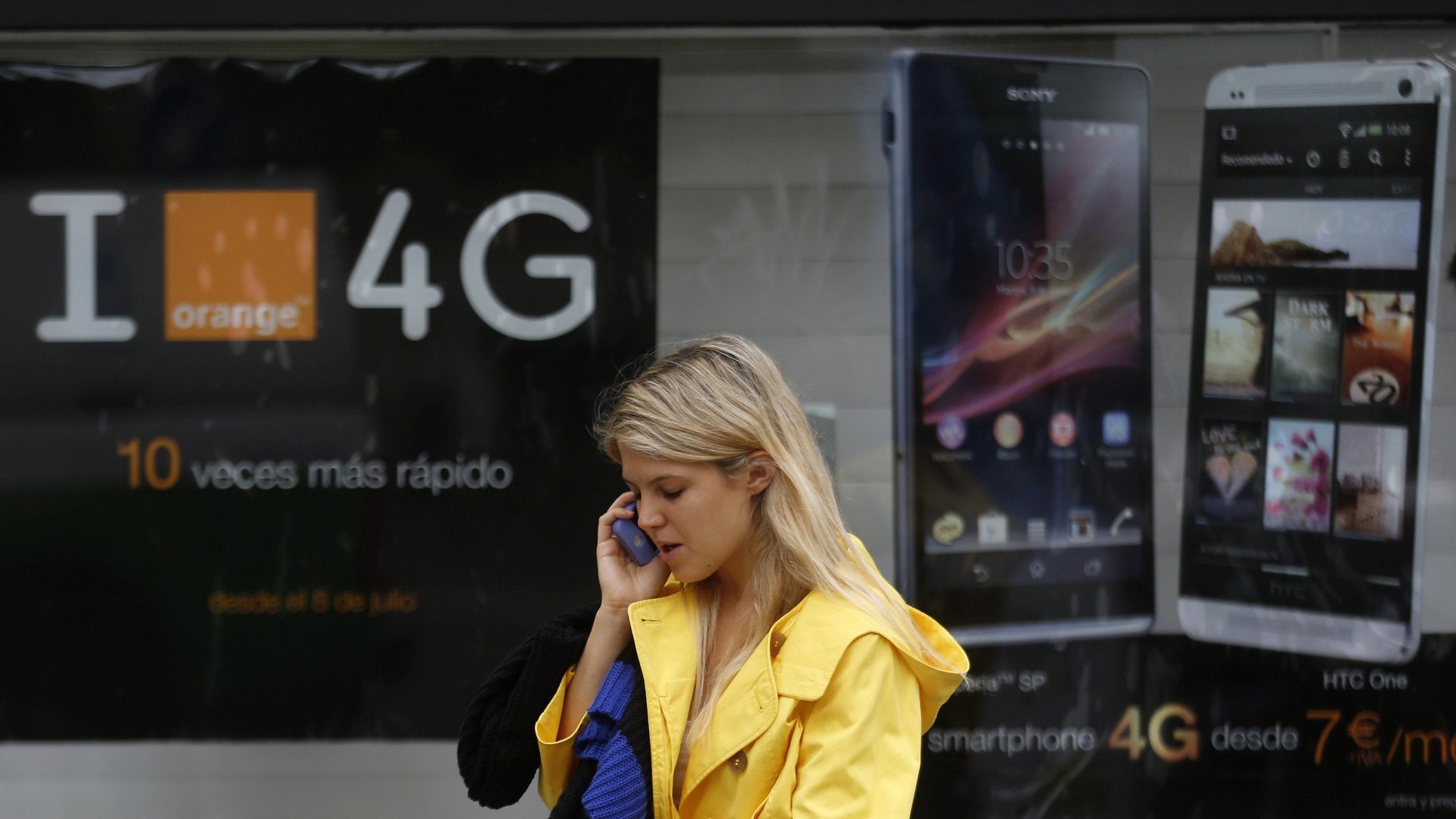Some day Europeans will roam freely with their phones, and wireless carriers are worried
The borders within countries in the European Union no longer exist as far as currency, trade in goods and services, and people are concerned. But for mobile phones, they’re all too real. Europeans who travel around the continent still incur global roaming charges—an anachronism that impedes mobility and productivity on the continent, which only just emerged from recession.


The borders within countries in the European Union no longer exist as far as currency, trade in goods and services, and people are concerned. But for mobile phones, they’re all too real. Europeans who travel around the continent still incur global roaming charges—an anachronism that impedes mobility and productivity on the continent, which only just emerged from recession.
Europe is slowly lurching towards a solution. The EU this week unveiled much-anticipated regulations designed to eliminate roaming charges for consumers. But it won’t happen without without fierce resistance. Roaming provides lucrative income for European carriers. Stricter rules on pricing in domestic markets than those in the US also mean they depend on outsized roaming fees to generate profits. Bernstein Research telecom analyst Robin Bienenstock estimates that roaming accounts for 5% of revenues for the continent’s biggest players.
Eliminating it could threaten their ability to invest in high-speed mobile networks, the carriers claim. This is an area where Europe is already falling badly behind its peers. Where it was once years ahead of the US in adopting 3G, now the penetration of superfast LTE (long term evolution) services is 35 times greater in the US than in Europe, the European Telecommunications Network Operators association has warned.
Also behind the current situation is the fact that spectrum—the airspace needed to operate all wireless technologies—remains a national asset, licensed by individual governments. The smartphone boom has made spectrum increasingly scarce and expensive, and carriers have been spending billions on it, an investment they need to recoup. The new regulations, which still need to get through a key EU legislative body, attempt to address this by harmonizing sales of the airspace, so operators on the continent are operating on the same frequencies.
Yet the ultimate solution is probably pan-European consolidation to increase scale. At the very least, Bienenstock last month said, roaming alliances, similar to the Star/Alliance/One World groupings in the airline world, are likely. Vertical tie-ups between wireless carriers and fixed line or cable operators, such as Vodafone’s recent purchase of Kabel Deutschland, or horizontal deals between mobile operators, seem inevitable.
The EU Commission responsible for the telecom industry does not seem opposed to consolidation, in principle. But this will be the ultimate decision of separate, EU competition regulators, and it could require further reform.
If and when this happens, US giant AT&T, which has been linked with a bid for Vodafone, could be involved. ”I continue to be fascinated and surprised by how slow it’s moving in Europe,” AT&T CEO Randall Stephenson told Bloomberg. ”I see that as a huge opportunity for somebody.”